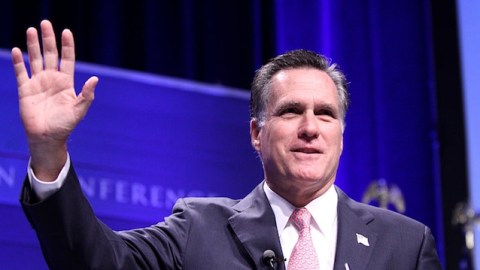What Do the Iowa Caucuses Mean?

Don’t read too much in to Mitt Romney’s narrow victory in the Iowa caucus. There’s no question that the relatively small state of Iowa has an outsize influence both on the presidential nominating process and—as a result—on the national political agenda. But that doesn’t mean that the roughly 120,000 Iowans who voted in this year’s caucus will determine by themselves who the eventual Republican nominee will be.
As Fordham professor Monika McDermott explained earlier this week, winning the Iowa caucus hardly guarantees winning the Republican nomination. Consider that the winners of the last five contested caucuses were George H.W. Bush in 1980, Bob Dole in 1988, Bob Dole again in 1996, George W. Bush in 2000, and Mike Huckabee in 2008. Of those five just two—Dole in 1996 and George W. Bush in 2000—went on to win the Republican nomination that year. Of course, both George H.W. Bush and Bob Dole won the Republican nomination 8 years after winning Iowa. In other words, the winner of the Iowa Republican caucus is just as likely to win the Republican nomination 8 years later as they are the year they actually win the caucus. So maybe, as McDermott said—I think she was joking—we should expect Mike Huckabee to win the Republican nomination in 2016.
It’s not that I have doubts about Mitt Romney’s ability to win a national campaign. Nor is it that the race was a virtual tie, which in a sense is victory for Rick Santorum. The truth, as McDermott said, is that it’s still early in the nominating process. Iowa caucus voters are hardly representative of the party as a whole. Among other things, as Big Think’s Kris Broughton says, Iowans as a group are considerably more white than the general electorate. In addition, the way the caucus is structured tends to discourage ordinary rank-and-file voters from participating. As a result, the Iowa caucus tends to be dominated by more politically active—and more conservative—Republicans. In 2008, 45% of Iowa Republican caucus voters identified as themselves as “very conservative,” compared to just 21% of New Hampshire Republican primary voters. That may be why conservative candidates tend to outperform their poll numbers in the Iowa caucus.
Mitt Romney may yet win the nomination. Like most political observers, I think that he has fewer serious weaknesses than his major rivals. But the Iowa caucus is the just the first part of a long winnowing process. It provides a substantial boost for candidates like Santorum who outperform their expectations. And candidates who can’t compete at all in Iowa—particularly conservative candidates like Rick Perry and Michele Bachmann—probably don’t stand much chance of winning the nomination. But whether Romney will actually go on to win himself it is still anyone’s guess.




